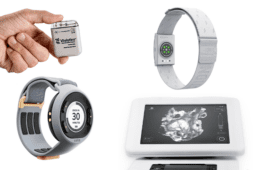The optimal treatment approach for most women with breast implant-associated anaplastic large-cell lymphoma (BI-ALCL) is complete surgical excision of the implant and surrounding capsule, according to an international study led by researchers at The University of Texas MD Anderson Cancer Center.
First described as a case report in 1997, BI-ALCL is a rare form of T-cell lymphoma that forms in the scar tissue or in the fluid surrounding a breast implant. The Food and Drug Administration published a safety communication detailing the potential risks of developing BI-ALCL to educate women with breast implants in 2011, sparking further interest in this rare disease.
The current study, published in the Journal of Clinical Oncology, represents the most comprehensive study of BI-ALCL to date, including 30 investigators from 14 institutions across five continents.
Approximately 450,000 breast implants are placed annually in the U.S., and an estimated 10 million women worldwide have breast implants. The annual incidence of BI-ALCL is estimated to be 0.1 to 0.3 per 100,000 women with breast implants. The disease manifests as a large fluid collection around the implant over a year after implantation, usually taking an average of 8 years to develop.
“Although this disease is rare, it appears to be amenable to treatment and, in the vast majority of patients, the outcome is very good,” said Mark Clemens, M.D., assistant professor, Plastic Surgery and lead author of the study. “The disease can be reliably diagnosed, and when treated appropriately it has a good prognosis.”
Whereas the optimal management for BI-ALCL up to now was not supported by evidence-based medicine, this study sought to evaluate treatment efficacy on disease outcomes and determine the best treatment approach. The study expands upon a seminal MD Anderson study on BI-ALCL published in the Journal of Clinical Oncology in 2014.
The researchers gathered detailed treatment and outcome information from a total of 87 BI-ALCL patients, including 37 whose information had not previously been published. A review of treatment approaches in relation to event-free survival and overall survival revealed that surgery was the optimal frontline therapy for BI-ALCL.
“We determined that complete surgical excision was essential for the management of this disease,” said Clemens. “Patients did not do as well unless they were treated with full removal of the breast implant and complete excision of the capsule around the implant.”
Although patients in this study had received a wide variety of multi-modality therapies, patients with complete surgical excision had recurrence rates of only 4 percent at five years, compared to 28 percent for radiation therapy and 32 percent for chemotherapy. Surgery also significantly improved overall survival compared to non-surgically resected patients receiving chemotherapy or radiation therapy.
The surgical approach as a primary modality for BI-ALCL treatment is a significantly different recommendation than standard therapy for most other lymphomas, which usually involve chemotherapy alone.
“This lymphoma represents a different paradigm from systemic anaplastic large-cell lymphoma, in particular because of its strong association with breast implants,” said Roberto N. Miranda, M.D., professor, Hematopathology and senior author of the study. “We have demonstrated that this is a predominantly localized disease where surgical excision has a primary role.”
The authors emphasize that despite the overall good prognosis, some rare cases of BI-ALCL exhibit more aggressive behavior with systemic dissemination. As a part of this study, the authors are gathering tissue from these patients to assess underlying mechanisms for progression of disease. Additional research is ongoing to optimize therapy for these cases through genetic profiling and defining the role of chemotherapy and radiation. They are also studying animal models to further assess the role of breast implants in the pathogenesis of this lymphoma.




